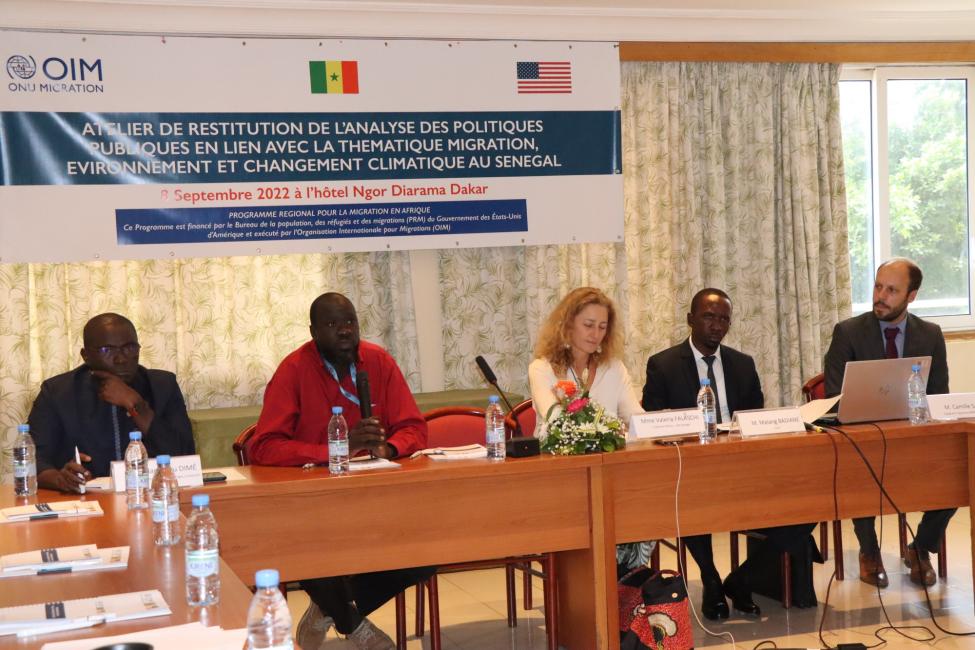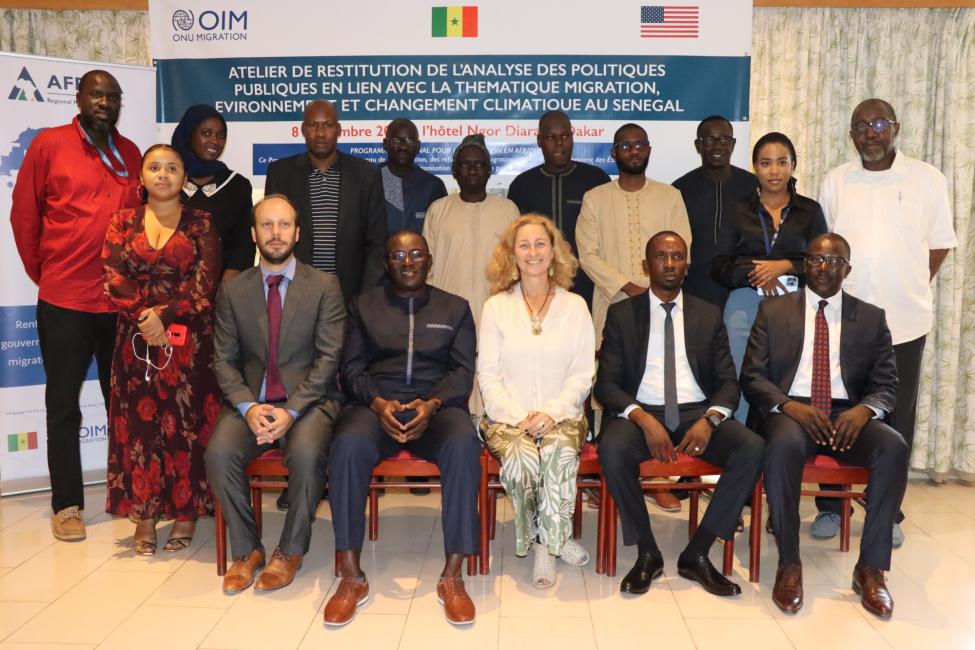-
Who we are
WHO WE AREThe International Organization for Migration (IOM) is part of the United Nations System as the leading inter-governmental organization promoting humane and orderly migration for the benefit of all. IOM has had a presence in West and Central Africa since 1998.
About
About
IOM Global
IOM Global
-
Our Work
Our WorkAs the leading inter-governmental organization promoting humane and orderly migration, IOM plays a key role to support the achievement of the 2030 Agenda through different areas of intervention that connect both humanitarian assistance and sustainable development. Across West and Central Africa, IOM provides a comprehensive response to the humanitarian needs of migrants, internally displaced persons, returnees and host communities.
Cross-cutting (Global)
Cross-cutting (Global)
- Where we work
- Take Action
- Data and Resources
- 2030 Agenda
IOM Senegal Validated the National Study on the Analysis of Public Policies in Relation to Migration, Environment and Climate Change
Dakar– As part of the implementation of the African Regional Migration Programme (ARMP) project, the International Organization for Migration (IOM) organized a workshop on Thursday 8 September at the Ngor Diarama Hotel to review and validate the national study on the analysis of public policies related to migration, environment, and climate change in Senegal.
In Senegal, factors pertaining to the environment and climate change have been drivers of internal and international migration for several years. Today, environmental degradation and climate change have direct impacts on migration, with diverse profiles: internal migration to urban centres, international migration as well as labour migration in West African countries. In her opening address to the workshop, IOM Senegal Chief of Mission, Valeria Falaschi, pointed out that “understanding the challenges of climate issues with respect to migration management is essential to achieve safe, orderly, regular and beneficial migration”.
The national study on the analysis of public policies related to migration, environment and climate change in Senegal was conducted by Research Professor Mamadou Dimé. At the end of his presentation of the study's results, the Professor outlined the following findings to the audience:
- State bodies in charge of environmental and climate change issues lack the capacity (especially qualified human resources for migration management) to better mainstream this issue in the reference documents they regularly prepare, particularly under of the United Nations Framework Convention on Climate Change (UNFCCC).
- The nexus between migration, environmental degradation and climate change is not institutionally identified through its integration in the political, institutional, and legal documents that currently serve as reference frameworks for public policy in Senegal.
- There is considerable institutional documentation on climate change, including its forms, adverse consequences, adaptation and mitigation practices and strategies to deal with it, but the links with migration are only mentioned from a twofold analytical perspective: migration as a practice of adaptation to environmental degradation and climate change, and its impacts on irregular emigration.
After welcoming this initiative, the Professor said: “This analysis of public policies on the theme of migration, environment and climate change in Senegal provides key resources for developing increasingly appropriate policies”. The workshop for the review of the study brought together the Secretariat of State in charge of Senegalese Abroad, the Directorate General in charge of Senegalese Abroad, the Ministry of the Environment and several actors from local authorities, civil society, international organizations, the United Nations system, the private sector, academia, and research community. This workshop was held to present findings of the study conducted within the framework of the African Regional Migration Programme (ARMP) funded by the US Government through the Bureau of Population, Refugees, and Migration (PRM) and implemented by the International Organization for Migration (IOM).
The ARMP covers 21 countries in Africa, including 5 in West Africa. Its objective is to support governments to respond appropriately to needs and emergencies, build national capacities and strengthen regional and international cooperation in migration management, partnership and crisis response.
For more information, please contact:
- Adama Dia, IOM Senegal Communication Unit, email: adia@iom.int
- Camille Saade, Project Officer, email: csaade@iom.int


